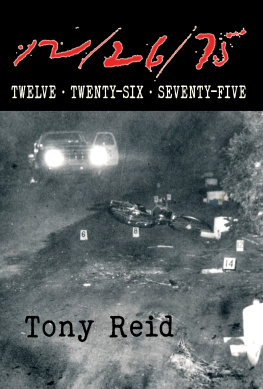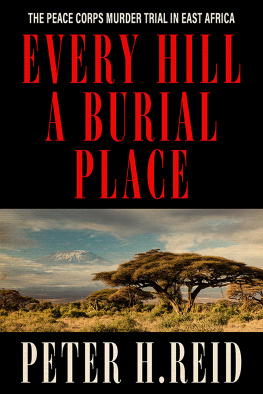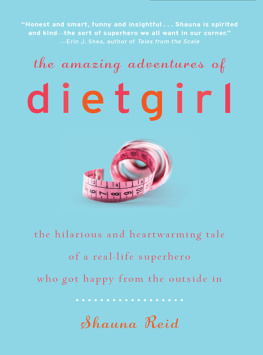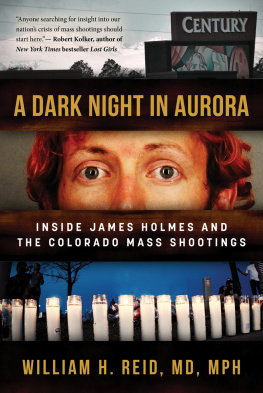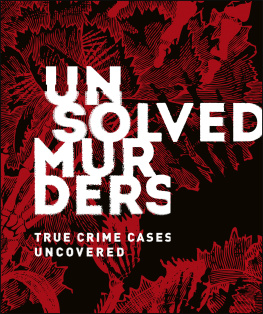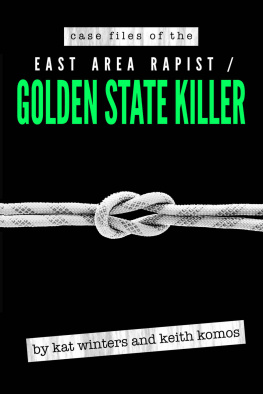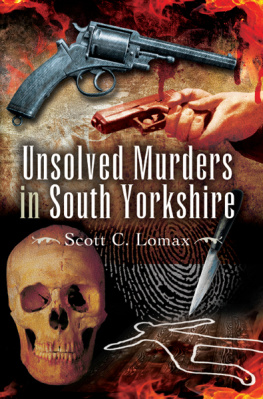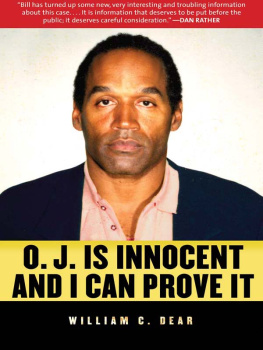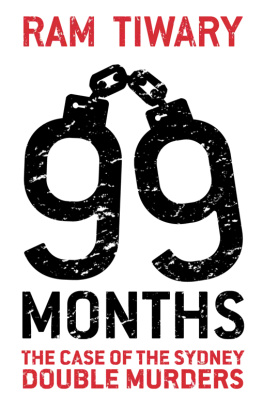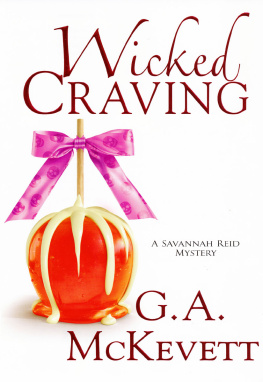12/26/75
TWELVE TWENTY-SIX SEVENTY-FIVE
Tony Reid
12/26/75
Copyright 2022 Tony Reid
All rights reserved. No part of this book may be reproduced by any means without the written permission of the publisher, except for short passages used in critical reviews.
Published by:
Genius Book Publishing
PO Box 250380
Milwaukee Wisconsin 53225 USA
GeniusBookPublishing.com
220720
Dedication
This book is dedicated to John Vaughan, former Sergeant with the Visalia Police Department, who started work on this case as the lead investigator in the homicide investigation of Claude Snelling on September 11, 1975.
While many others shared insight and crucial information, nothing can compare with Johns guidance. Of course, his firsthand knowledge of the case was invaluableafter all, he was proven to have been right all along. He carefully explained why the theory that an early Ransacker suspect, a man who many had used to disconnect the Visalia cases from the rest of the series, was not only incorrect, but just comically wrong. In describing the Visalia crime scenes, he described a sense of evil that was unlike anything else he had ever encountered.
For the years that followed his time on the force, even into retirement, John noted that this case was the one that would never leave his mind until it was solved. This was the sole reason he gave so freely of his time.
It was a truly great moment to share the news with him the morning of the arrest. John Vaughan exemplifies a rare blend of courage, creativity, and honesty. After reviewing the facts of the case, Vaughn offered me his favorite analogy: Investigators minds are like parachutes: they function only when they are open. For these things, and more thank you, John.
Table of Contents
Foreword
In 1906, Hans Gross wrote the first manual for law enforcement officers: Criminal Investigation: A Practical Handbook for Magistrates, Police Officers, and Lawyers. In it, he advises that we always keep an open mind:
How often do we not come across inquiries where the Investigating Officer has started on an excellent plan, but has adhered to it with desperate tenacity even when the data upon which it was based have long since changed? Thus, to continue to follow a line, the falsity of which has been demonstrated, may sometimes prove more fatal and more dangerous than to grope about with no plan at all: in the latter case it is still possible to hit the right clue, in the former it is absolutely impossible. The case where an inquiry runs the greatest risk of failure is when the scheme supposes a certain person to have been the author of the crime; and, after having worked entirely with this idea, it suddenly becomes evident that that person is innocent.
The greater difficulty there is in securing anything, the more one holds on to it; that is why fools are so obstinate. They never willingly abandon an idea, because they have had trouble in getting it into their heads. Now the scheme of an inquiry is difficult to follow out, and, when one has already worked in conformity therewith, it is not willingly abandoned; but still pursued unthinkingly and almost automatically. There is only one way to obviate such a danger, never to allow himself to be dominated exclusively by one idea and never to follow exclusively that sole idea.
CHAPTER ONE
Well catch the guy
Ill be driving my wifes orange Jeep, you wont be able to miss me. Retired VPD Sgt. John Vaughan is a master of understatement.
I chose the Black Bear Diner because it seemed like the kind of place where cops eat. They serve all-day breakfast, steaks, and bottomless cups of coffee in their signature white mugs. I was afraid that if I suggested a place more suited for a vegan from Los Angeles, I might make an already awkward meeting totally unbearable for both of us.
The Jeep was the brightest thing in the parking lot, maybe in the entire county, now turned brown after years of endless drought. As I drove into town, the only color was the green from irrigated groves of citrus trees. Although it was still early, the day was quickly heading over 100 degrees. Visalia is a small city stuck in time. It prides itself on pretending that it is still 1950. The A&W brews its own homemade root beer, and sells it in jugs that you can take home. However, it was impossible to miss the racist graffiti scrawled on the wall of the Indian grocery store on the edge of the A&W parking lot.
I understood Visalia, and its power structure. My great-grandparents chased the American farming dream across the country at the turn of the 20th century, going from Kansas to North Dakota, then to the newly planted orange trees of Southern California. My great-grandfather was a pacifist, and they fled to Canada during WWI, finally returning to the apple and cherry trees of northeastern Washington State. My great-uncle, Buck, was the police chief of a small farming city a lot like Visalia. Rumors were that he ran the town as his own personal criminal empire. He took a cut of every illegal enterprise, and black and brown suspects ended up dead in the river, rather than in a jail cell or courtroom. According to my mother, the rumors were all true. As soon as she could, she left for Seattle, and never looked back. Her sister took the other path, became a police dispatcher, and married the son of a homicide detective in Spokane.
I never planned on becoming an attorney, but somehow my internal need for fairness found a practical profession. Handling criminal appeals immediately put me in direct conflict with law enforcement, prosecutors, and judges. Its a specialized area of the law that requires endless hours of research on each case. The best appellate attorneys start at the beginning, with the events leading up to the crime, not the trial itself. That means digging into original police reports, witness statements, and forensic lab bench notes. Overworked and underfunded public defenders are rarely granted money for investigators and forensic experts, and critical details can easily be missed.
Although my office is staffed by licensed attorneys and private investigators, we each bring unique life experiences and skills. I spent summers on drilling rigs in the Arctic Circle and in Montana. Guns were a necessity in camps accessible only by helicopter, and stalked by grizzly bears and wolves. We have dirt bike riders, and a pilot who can conduct surveillance via small plane or drone. One of our attorneys is a forensics expert, who studied criminology at Oxford University, and can build a complete family tree for a subject while you wait in the field for the next address to check out or vehicle to follow. Two of us lost close friends to serial offenders, and we are guided by what we know they would want us to do if we were pursing their killers. Terri and Laurie would want the truthno matter how long it takes, or how difficult it may be to accept.
My first phone call to John Vaughan went pretty much exactly as I expected. John had retired as a sergeant with VPD in 1996 after 35 years of service, and 20 years later, he had little interest in revisiting a 40-year-old unsolved crime spree. However, I wasnt calling about just any caseit was the longest and most expensive investigation in VPD history, and Sgt. Vaughan had been the lead detective. I asked him if I could just email a few documents, and he finally agreed to let me mail him an envelope. The day he got the documents he called back, and asked if we could meet to discuss the information. Now here we were in the parking lot of the Black Bear Diner.

